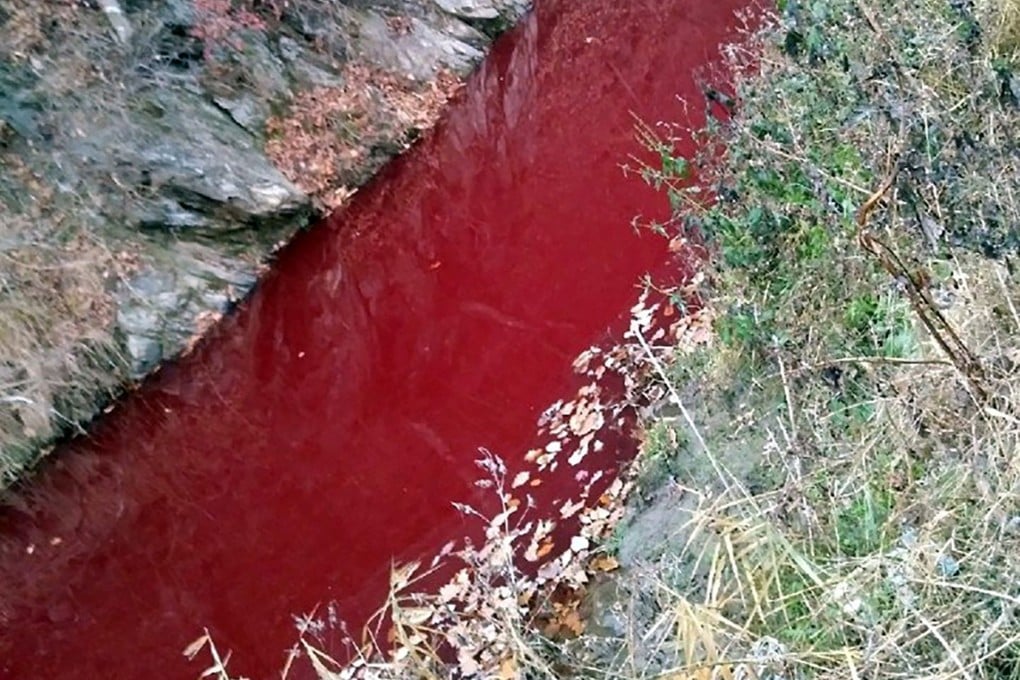Advertisement
River turns red with blood as South Korea culls pigs to curb African swine fever
- South Korea has culled around 380,000 pigs since the first case of the haemorrhagic disease was reported in September
- Heavy rains caused blood to seep into the river, sparking concerns about drinking water
Reading Time:2 minutes
Why you can trust SCMP

A river near the inter-Korean border turned red on Sunday with the blood of pigs which were slaughtered to curb the spread of African swine fever.
South Korea has culled around 380,000 pigs since the first case of the haemorrhagic disease was reported in September.
African swine fever is highly contagious and fatal to swine herds, but does not affect humans. It occurs among pigs and wild boars, transmitted by ticks and direct contact between animals.
Advertisement
Pig cases are nearly always fatal and there is no antidote or vaccine, with the only known way to prevent the disease from spreading being a mass cull of livestock.

A local NGO said that heavy rains last week caused blood from a burial site near the inter-Korean border – where some 47,000 pig carcasses were piled up – to seep into the Imjin River on Sunday, turning some of the stream red.
Advertisement
“It made many people living in the area anxious and worried,” said Lee Seok-woo, who heads the NGO Yeoncheon Imjin River Civic Network.
Advertisement
Select Voice
Choose your listening speed
Get through articles 2x faster
1.25x
250 WPM
Slow
Average
Fast
1.25x